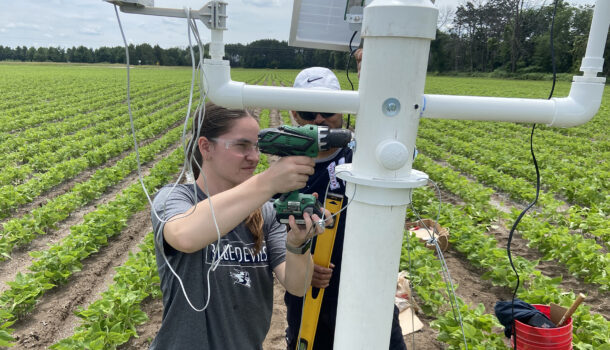How much water does it take to grow 100 pounds of kidney beans? Most people wouldn’t think to ask such as question — but if you are a family business competing on a global scale, the answer matters.
“This information will allow kidney bean growers in Wisconsin to better target their irrigation practices to reduce strain on the state’s freshwater resources as well as boost yields and prices for Wisconsin farmers,” says Charles Wachsmuth, vice president of Chippewa Valley Bean.
Wisconsin-based Chippewa Valley Bean is the largest processor and exporter of kidney beans in the world. The company prides itself on innovation, and it has created a unique partnership with faculty at University of Wisconsin-Stout to gain cutting-edge research and development.
“I recently went to a global conference in Italy, and nobody is doing the research we are doing around crops and water and packaging sustainability,” Wachsmuth says.
That innovative research directly involves undergraduate students, thanks to funding from the Freshwater Collaborative of Wisconsin. Through the Crop Per Drop project, students trained by Professor Keith Wojciechowski, are developing and testing mathematical models to help kidney bean farmers use water more efficiently.
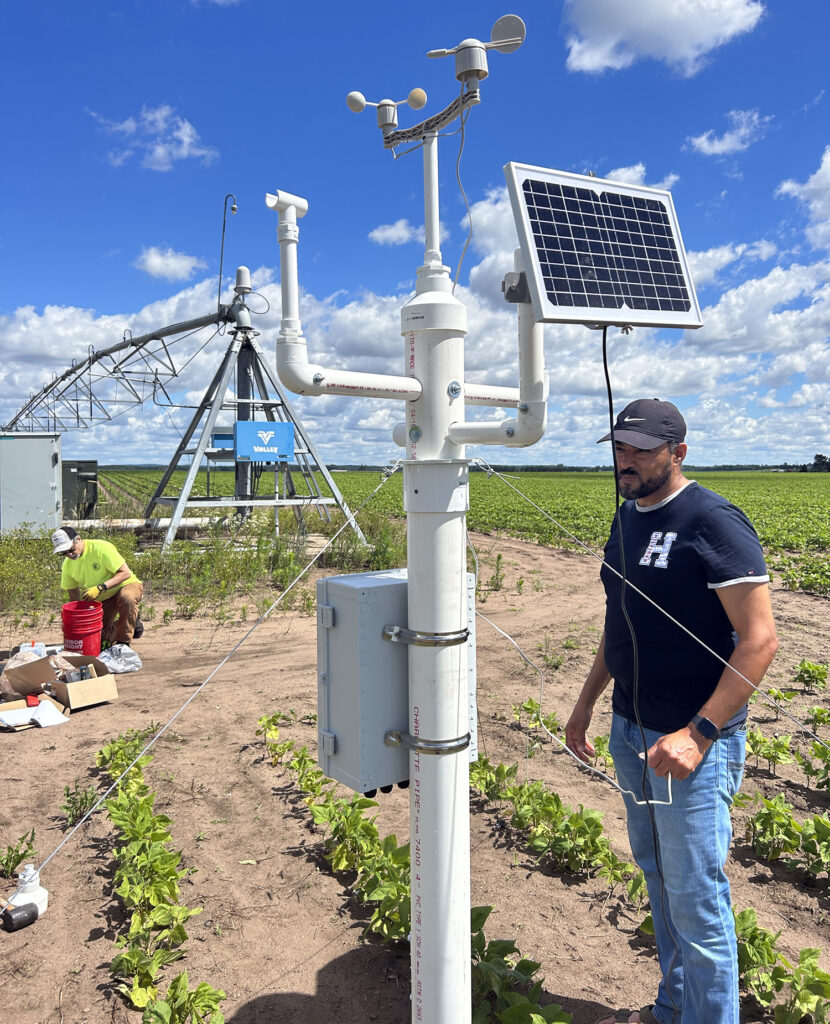
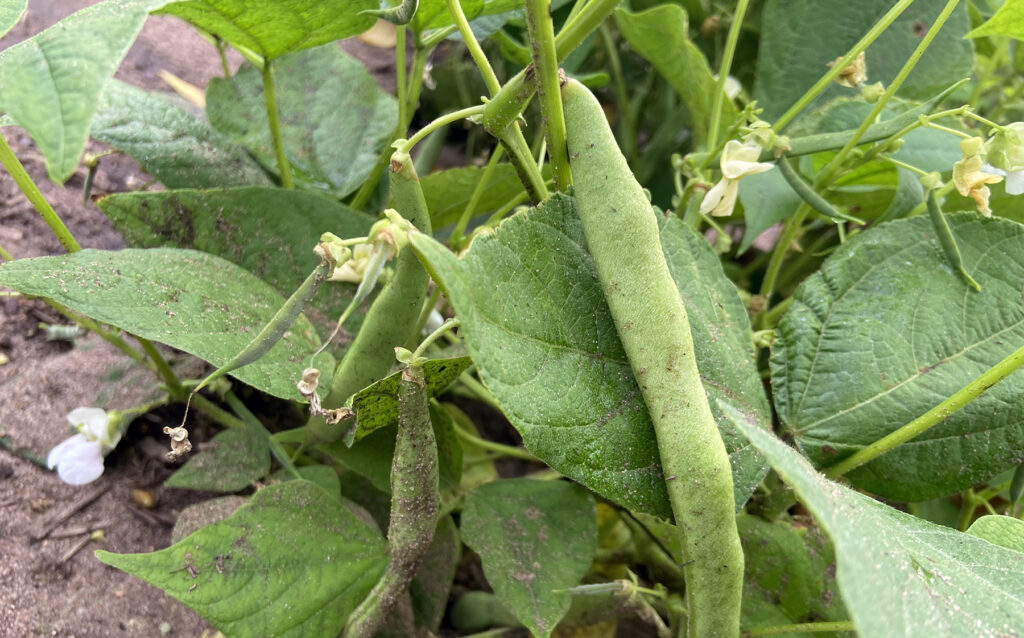
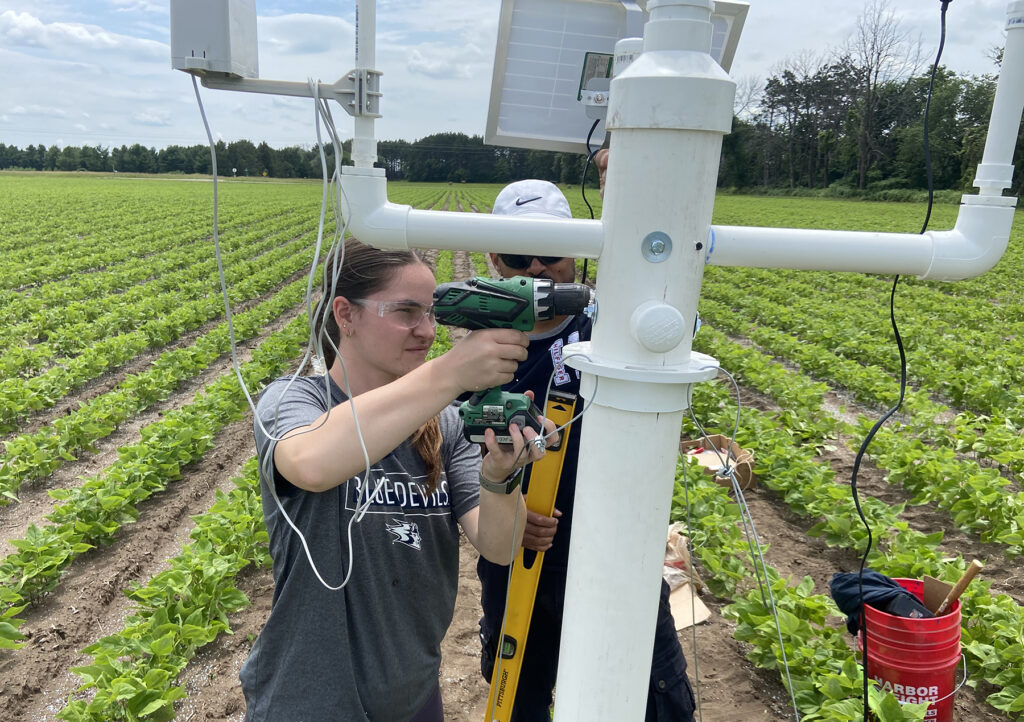
The project exemplifies how companies can partner with university faculty and students to create a win-win situation. Students get hands-on experience, and the company gets staffing resources and innovative research.
The first round of Freshwater Collaborative funding, in 2022, allowed Wojciechowski to hire three students to work on mathematical models that help farmers optimize water use for growing kidney beans.
With the most recent round of funding, the collaborative team installed five weather stations in farm fields. The stations collected real-time data that measured sunlight, soil moisture, wind speed and direction, and rain.

“No two days were alike, and this kept the work interesting and exciting.”
Wojciechowski says the project gives students majoring in computer science or applied math skills beyond using and developing software.
“There’s huge benefit to seeing how software you build will be used in the field,” he says. “They get to see all the ways the software needs to be stable and viable — and how software works differently in an office than in real time out in the field.”
Lindsey Redepenning, of Elk River, Minn., an applied mathematics and computer science major, helped install the weather stations last summer and now she’s analyzing the data that was collected. The goal is to enhance the mathematical models to allow farmers to see how various scenarios will affect yield. This will help them adjust their agricultural practices in response to real situations.
Redepenning says she gained a wide range of skills that will help her in her future career. One of the most important was learning how to communicate mathematical concepts to people without a math background. She also learned hands-on skills like how to rewire a circuit board, modify a weather station, restart a wi-fi hotspot and recharge batteries.
“Some days were spent out in a field setting up weather stations and others were spent behind a computer screen writing code,” she says. “No two days were alike, and this kept the work interesting and exciting.”
The weather stations and models could be expanded in the future for use with other crops or to look at other factors that affect crops, such as disease and weeds.
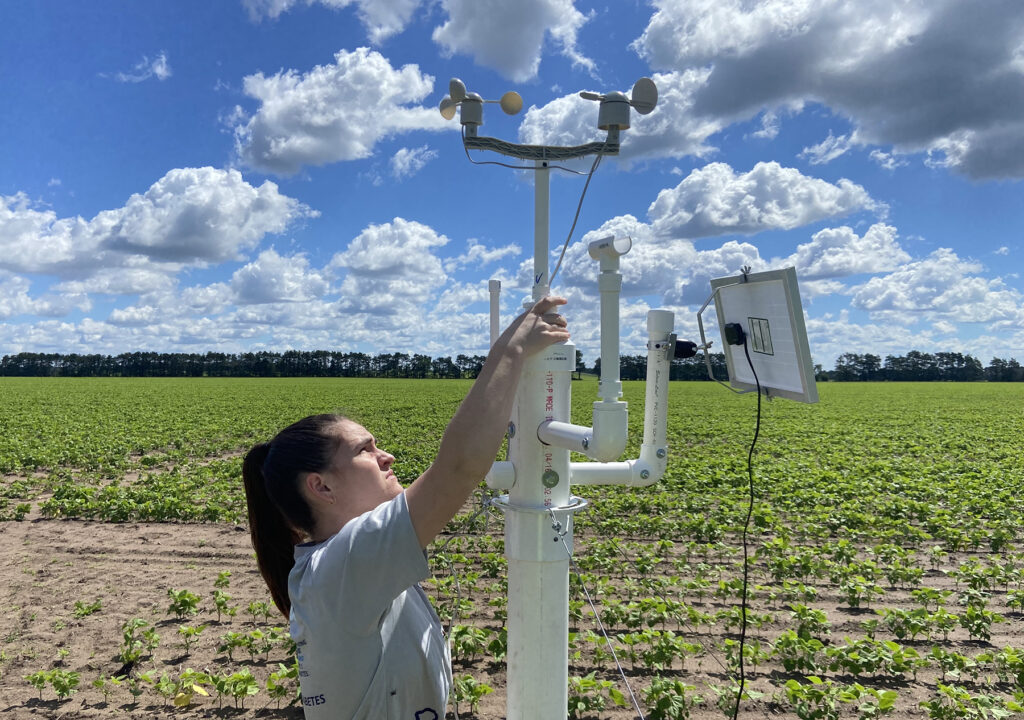
The Crops Per Drop project has also opened the door to other industry-academic partnerships. Chippewa Valley Bean has connected Wojciechowski to other companies who may have similar R&D needs. When Chippewa Valley Bean wanted to use more sustainable bags to hold its beans, Wojciechowski introduced them to UW-Stout faculty who could work on packaging ideas.
“We are greatly appreciative of the strong university system in Wisconsin and the access it gives us to new and cutting-edge research that we wouldn’t be able to self-fund,” Wachsmuth says. “If we want to keep agribusiness in Wisconsin strong, we must show continued support for our specialty crop growers and processors.”

